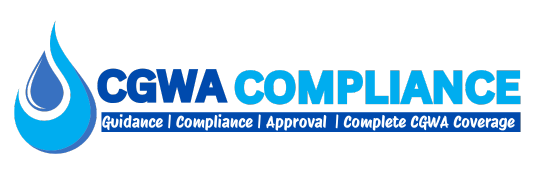Central Ground Water Authority (CGWA) – Official Guidelines & Exemptions
Understanding the rules, compliance requirements, and sectors exempted from mandatory CGWA NOC for groundwater extraction in India.
What is CGWA?
The Central Ground Water Authority (CGWA) was constituted by the Government of India under the Environment (Protection) Act, 1986. The CGWA regulates and controls groundwater extraction across India to ensure sustainable water management. It grants No Objection Certificates (CGWA NOCs) to large-scale projects requiring water.
Applicability of CGWA Guidelines:
- These guidelines are pan-India (all states & UTs).
- If state rules conflict with CGWA guidelines, CGWA rules prevail.
- States can, however, add stricter norms based on local hydro-geology.
Who Needs a Mandatory CGWA NOC?
Industries that Require CGWA NOC
All new/existing industries, expansion projects, mining activities, and infrastructure projects using groundwater must obtain CGWA permission (except exempted categories).
Exemptions from CGWA NOC
Certain categories of small users, households, and public projects are legally exempted from needing a formal CGWA NOC, though compliance rules often still apply.
Further Exemptions & Water Use Requirements
Domestic Use Exemptions:
Industries/infrastructure/mining projects using groundwater only for drinking/domestic purposes up to 5 cubic meters/day.
Armed Forces & Central Armed Police Forces establishments (for domestic use).
Rural drinking water supply schemes are exempt.
Agricultural and Rainwater Harvesting Compliance
Agriculture & Small Scale:
Farmers drawing groundwater for irrigation and agriculture do not need permission.
Micro & small enterprises drawing less than 10 cubic meters/day are exempt.
Exemption for group housing is subject to rainwater harvesting implementation.
Lifetime Exemption for Small Industries (Usage Below 10 KLD)
Industries using less than 10,000 litres/day (10 KLD) of groundwater get a lifetime CGWA exemption. However, it is mandatory to apply on the BhuNeer Portal, submit required documents, and obtain the Exemption Certificate. Compliance requires maintaining a logbook and installing a flow meter/digital device to record daily usage.
Essential CGWA Process Guides
- → Step by step process to register on Bhuneer portal
- → Step by Step guide to apply for New CGWA NOC
- → Step by step guide for renewal of CGWA NOC
- → Step by step guide for CGWA Self inspection
- → Step by step process for import of NOCAP Application from CGWA portal
- → CGWA Penalty Provisions & Legal Consequences
- → CGWA NOC Guidelines for Bulk Water Supply
- → National Building Code (NBC) 2016 Water Requirements
Request Your Free CGWA Compliance Quote
Simplify your CGWA NOC application process 2025. Get expert support for application filing, document preparation, and compliance.
Call Us Today: 9279550247
Frequently Asked Questions (FAQs) on CGWA Guidelines
1. What is the legal basis for the establishment of CGWA?
The CGWA was established by the Government of India under the Environment (Protection) Act, 1986, following directions from the Hon’ble Supreme Court in the M.C. Mehta vs. Union of India case (1996).
2. If my state has its own groundwater rules, which guidelines prevail?
The CGWA guidelines are pan-India. Where state rules conflict with Central Ground Water Authority guidelines, the CGWA rules prevail. States can, however, impose additional, stricter norms.
3. Which major commercial users require a mandatory CGWA NOC?
Mandatory NOC is required for all New/Existing Industries (including food, beverage, textile, and pharma), Mining projects, and Large-scale Infrastructure projects (like construction and townships) that abstract groundwater.
4. What is the exemption limit for small enterprises and domestic users?
Micro & Small Enterprises using less than 10 cubic meters/day (10 KLD) are generally exempt. Residential group housing societies are exempt up to 20 cubic meters/day for domestic use, provided they implement Rainwater Harvesting (RWH).
5. Is groundwater extraction for agricultural activities exempt?
Yes, water abstraction by farmers for agricultural activities (irrigation) is generally exempted from mandatory CGWA NOC requirements.
